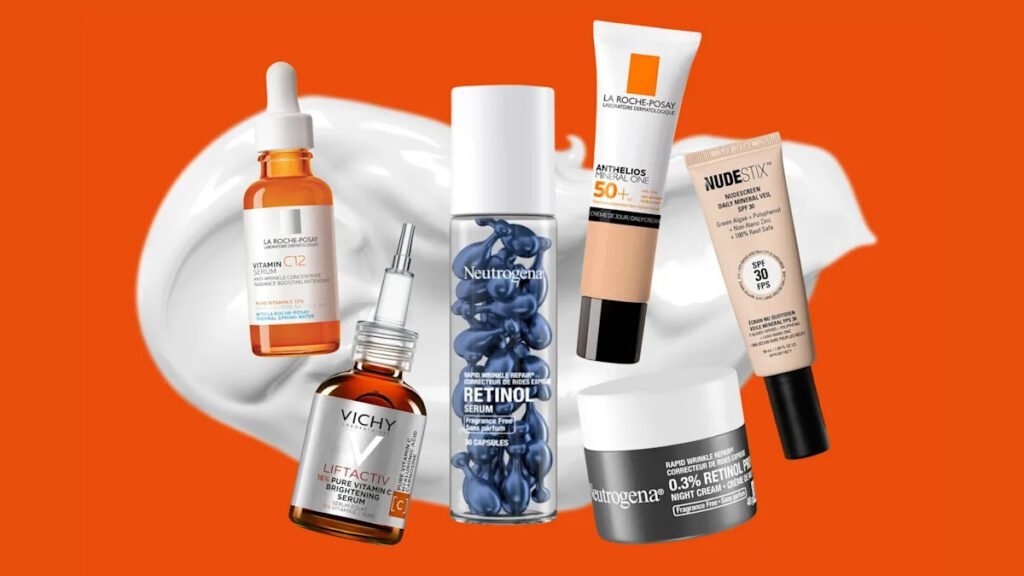The Ultimate Guide to Anti-Aging Skincare: Essentials That Work
While no skincare product can truly turn back the hands of time, investing in quality products can certainly help slow the aging process. Many beauty enthusiasts rave about anti-aging solutions such as wrinkle creams, serums, and eye creams, but Dr. Renita Ahluwalia, a leading dermatologist at the Canadian Dermatology & Plastic Surgery Centre, advocates for a simplified skincare routine that focuses on scientifically-backed essentials.
Why You Should Simplify Your Skincare Routine
Dr. Ahluwalia emphasizes that numerous skincare products, both anti-aging and general, lack scientific validation. She advises:
"If you’re going to spend the money on skincare, invest in things that are backed by science and are of high quality."
Instead of overwhelming yourself with countless products, focus on three universal essentials:
- Sunscreen
- Vitamin C Serum
- Retinol
Sunscreen: Your First Line of Defense
Sunscreen is non-negotiable for any aging skincare routine. Dr. Ahluwalia notes:
"I’m always surprised when patients want to try different treatments, but they’re not wearing sunscreen every day."
The majority of aging skin concerns arise from sun exposure, making daily sunscreen application a vital step. Consider the following:
- Invest Wisely: The average woman spends close to $1,000 on beauty annually. Not using sunscreen means you’re wasting your investment.
- Avoid Common Mistakes: Tanning beds and skipping sunscreen are among the worst skincare errors. Always wear at least SPF 30 before heading outside.
- Choose the Right Formula: For those experiencing pigmentation issues, a mineral-tinted sunscreen with iron oxide is recommended as it provides additional protection against visible light.
Explore more on the benefits of sunscreen here.
Vitamin C Serum: The Environmental Shield
A high-quality vitamin C serum should also find its way into your skincare routine. Dr. Ahluwalia highlights its protective qualities:
"A well-formulated vitamin C serum can really improve your skin’s ability to neutralize free radicals, boosting your sunscreen and protecting your skin."
When searching for a vitamin C serum:
- Look for Quality: Choose serums supported by research and that meet the "Duke Parameters," which dictate:
- Pure L-ascorbic acid content
- A pH of 2.0 to 3.5
- A concentration of 10-20%
These guidelines ensure the serum’s effectiveness and absorption.
Retinol: The Powerhouse Ingredient
Retinol is another cornerstone for maintaining youthful skin. As Dr. Ahluwalia states:
"Retinols are one of the most studied ingredients in dermatology; they help with cell turnover, collagen stimulation, fine lines, and pigmentation."
Choosing the Right Retinol
- Prescription vs. Over-the-Counter: Many medical-grade retinols are covered by prescription plans, offering a more affordable route.
- Stick with Pure Retinol: Avoid derivatives and select formulations that use pure retinol for best results.
Dr. Ahluwalia recommends options like Neutrogena for their quality retinol products, available as capsules or overnight creams.
For more insights on retinol, visit this dermatology website.
Common Skincare Mistakes to Avoid
To maximize your skincare routine, it’s crucial to steer clear of common pitfalls:
- Overcomplicating Your Routine: Tailor products to your skin type. A simple, effective approach trumps trends.
- Neglecting Sunscreen and Indoor Tanning: Both practices can lead to significant skin damage.
- UV Light in Manicures: Avoid UV light-cured manicures as they can result in skin damage. Opt for LED-cured options or traditional manicures instead.
Conclusion
In the quest for youthful skin, focusing on a streamlined regimen with scientifically-supported products can yield impressive results. By prioritizing sunscreen, vitamin C serums, and retinol, you can cultivate healthier, more resilient skin over time.
For full access to studies about skincare essentials, check out this resource.
Embrace a smarter skincare strategy and step confidently toward beautiful, radiant skin!


